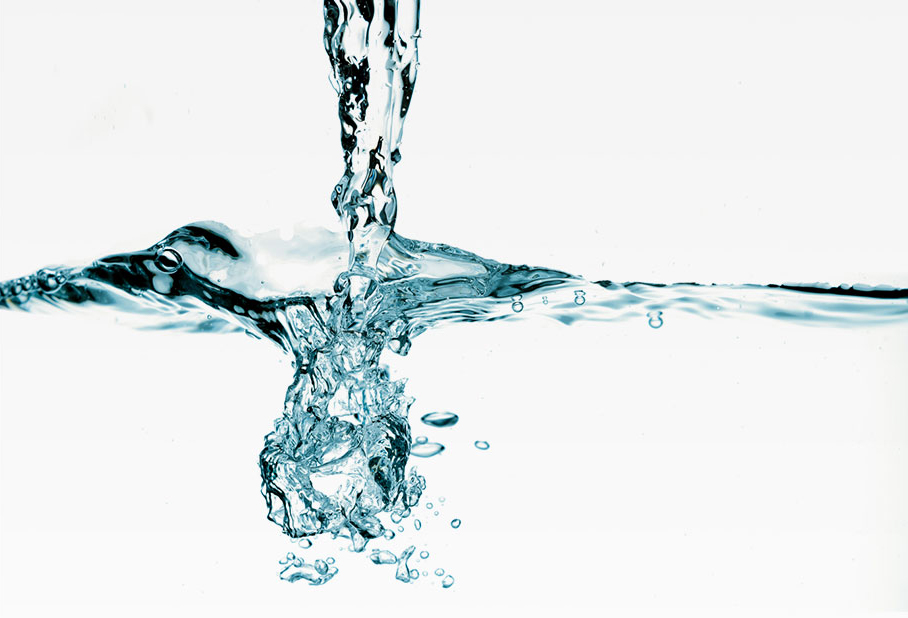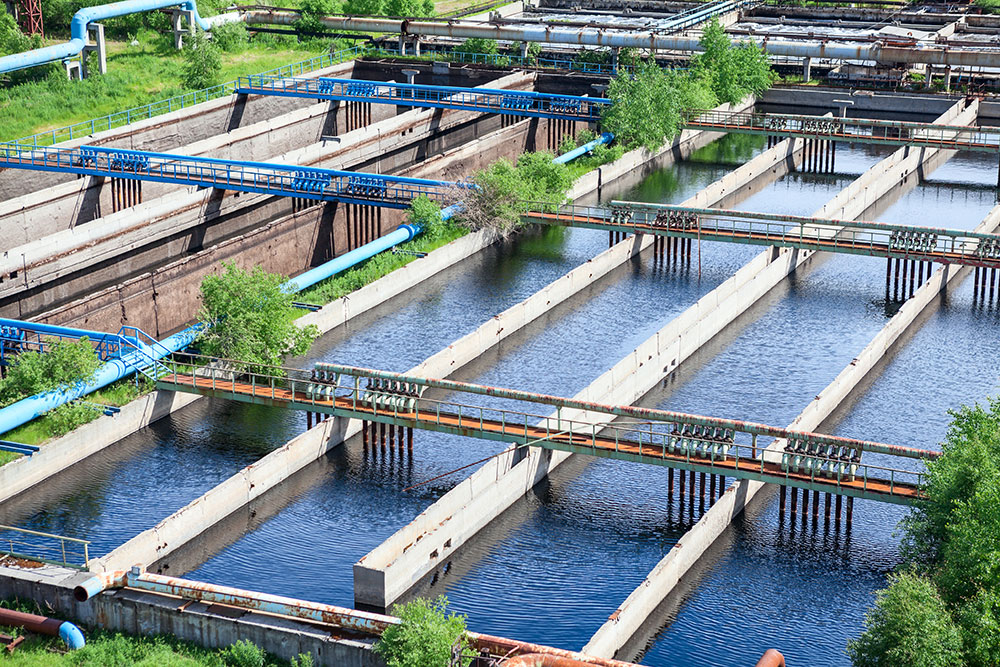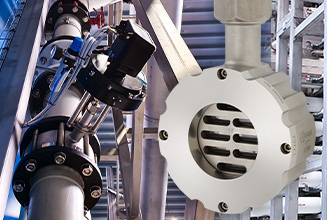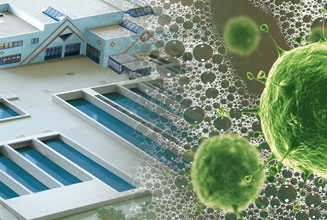
Schubert & Salzer valves have outstanding advantages when it comes to water treatment. Here, the focus is on the production of drinking water and the treatment of well, river and sea water for demanding industrial applications. Likewise, municipal and industrial sewage must be treated responsibly and in accordance with legal requirements so that it can be returned to the natural cycle.
Valves for applications with cavitation
Cavitation is often unavoidable when controlling water. It occurs when the local pressure in the smallest valve cross-section drops below the vapor pressure of the liquid. Vapor bubbles develop and then implode in the areas of higher pressure, causing erosive damage to valves and pipework, loud noise and unwanted vibrations. Especially in applications with very high differential pressures, such as reverse osmosis or membrane filtration, constructive countermeasures are a decisive factor for profitability.
Valves that are insensitive to cavitation, such as the sliding gate valve, are perfectly suited in applications prone to cavitation. The flow is not diverted due to its straight passage. The emerging vapor bubbles implode approx. 1-2 m behind the sliding gate valve in the center of the pipe, where they cannot cause any damage. This makes sliding gate valves the perfect solution for precise control in water applications involving high process and differential pressures, such as membrane filtration and reverse osmosis.
Valves for oxygen, ozone and air
Air, oxygen and ozone are used in water treatment for oxidative cleaning processes, for example in iron and manganese removal. In biological treatment stages, such as in aeration tanks, they accelerate the metabolism of the introduced microorganisms. Ozone is used to kill microorganisms in the disinfection of drinking water.
Special versions of Schubert & Salzer valves are suitable for oxygen and ozone. For this purpose, they undergo a special cleaning program to remove unwanted lubricants. All wetted, oxygen-approved valve components have been carefully selected and, where relevant, tested for suitability by the Federal Institute for Materials Research and Testing (BAM).
Valves for mobile water treatment plants
Mobile water treatment plants are deployed in numerous areas. They reliably provide clean water in humanitarian missions and after natural disasters, just as in temporary industrial applications. Long-term use of the compact systems is also required in many cases.
Size and weight are crucial factors for the mobility and rapid operability of the systems, which are often housed in containers. All system components are required to provide maximum performance with minimal space and weight.
Sliding gate valves are ideally suited for use in mobile water treatment systems. Due to their specific design, they are, beside the fluidic advantages, significantly more compact, energy efficient and many times lighter than comparable globe valves. They are therefore perfect for integration into compact plants.

Valves for drinking water
Drinking water is the most precious of all foods. The extraction of drinking water, its distribution via municipal networks and its consumption are therefore subject to strict conditions.
Schubert & Salzer valves are suitable for regulating and shutting off drinking water when configured accordingly. All wetted plastic parts of the seat valves, sliding gate valves, pinch valves, sterile valves and ball sector valves meet the requirements of EC Regulation 1935/2004 and are also FDA compliant.
Valves for highly contaminated water
Heavily contaminated or solids-laden media often place high demands on the employed valves. For example, seawater, river water and brackish water often contain sand and other abrasive particles. Ball sector valves have proven their worth in these wear-intensive applications thanks to their outstanding control accuracy and exceptionally long service life.
Industrial sewage and sludge are often heavily contaminated, as well as containing solids. Ball sector valves and pinch valves shut off reliably even with high abrasive particle loads and control the flow rate over a wide range.
Severely contaminated bilge water – a mixture of salt and condensation water, along with fuel and lubricants – which collects in the hull of ships, is a particularly challenging task. During treatment involving the use of special oil/water separators, Schubert & Salzer seat valves are notable for their long service life and reliable shut-off behavior.
Valves for water treatment agents
When dosing flocculation agents or chemicals in the chlorination process, Schubert & Salzer's sliding gate valves and seat valves ensure an optimized use of resources through high precision and reliability.
Pinch valves and ball sector valves are distinguished by minimal wear and exceptionally long service lives when controlling abrasive limewash in neutralization tanks to adjust the pH value of sewage.
Brochure:
Schubert & Salzer – Your Partner for Water Treatment
Application examples for stop and control valves in water treatment:
- Control of air and oxygen in sewage aeration tanks
- Ozone regulation for sewage treatment
- Production of processing water using nano-, micro-, ultra-filtration and reverse osmosis
- Production of ultra-pure and highly purified water (0.055 - 0.5 µS/cm)
- Regulation of hydrogen peroxide (H2O2)
- Mobile water treatment plants
- Dosage of chemicals for water treatment
- Treatment of industrial sewage and seepage water
- Drinking water control
- Condensate control valves in dissolved air flotation (DAF)
- Control of ozone in production and metering systems
- Test benches for filter membranes
- Control of sea water and sea water concentrate



